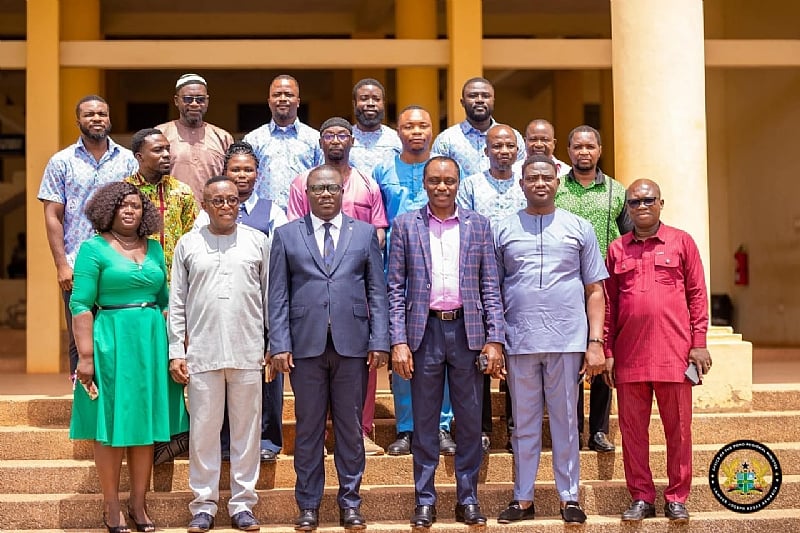The Bono Regional Minister, Joseph Addae Akwaboah, joined students and staff of the Materials Engineering Department at Sunyani Technical University (STU) last Thursday to mark the department’s tenth anniversary.
Also at the event were the Vice-Chancellor of STU, Ing. Prof. Kwadwo Adinkrah-Appiah; the Dean of the Faculty of Engineering, Prof. Samuel Wiafe and Professor Samuel Kwofie of the Department of Engineering, Kwame Nkrumah University of Science and Technology, among several others.
STU’s Materials Engineering Department, which began with one student and two lecturers, can now boast of over a hundred students.
The tenth anniversary was held under the theme: “Shaping the Fourth Industrial Revolution: A Decade of Advancing Welding and Energy Solutions through Materials Engineering.”
In a speech, the Regional Minister, Mr. Addae Akwaboah, described the anniversary theme as “forward-looking,” as it aligns with the country’s objectives to better position itself to respond positively to the impact of the fourth industrial revolution, thereby supporting nation building and socio-economic development.
Industrialization
He observed that the department’s past ten years witnessed incredible journey marked by growth, innovation and commitment to excellence adding that: “From modest beginnings, the Department of Materials Engineering has risen to become the key driver of practical education in areas that are critical to our nation’s industrialization drive, especially in welding technology, energy systems and material science.
The Regional Minister said the fourth industrial revolution, which is currently shaping the global landscape, is characterized by automation, artificial intelligence, smart manufacturing and advanced materials.
He said Ghana’s journey towards industrialization and energy sufficiency depends greatly on how well the country harnesses and builds technical competencies and said this explains why the government is investing heavily in Technical and Vocational Education and Training (TVET) to create the right environment for innovation and skills development.
Mr. Addae Akwaboah said the government is committed to investing heavily in the infrastructural development of TVET schools and technical universities to create an enabling environment for effective teaching and learning.
He congratulated the Materials Engineering Department, Faculty, students and alumni for a decade of meaningful contributions to technical education and national development.
Remarkable growth
For his part, the Vice Chancellor, Ing. Prof. Adinkrah-Appiah, noted that the department has achieved remarkable growth in student enrollment and has introduced more innovative programmes such as Welding and Metallurgical Engineering, Minerals Engineering, and Energy Materials and Systems Engineering over the past decade.
He assured the department of management’s commitment towards its development, to enhance research and innovation, leading to advancements in welding techniques, responsible mineral exploration, and improved energy efficiency that go beyond the confines of academia.
Partnerships
The Vice Chancellor further said the university’s collaborations with industry leaders would bridge the gap between theoretical learning and practical application and ultimately ensure that students are fully equipped to face real-world challenges.
He therefore encouraged the department to continue strengthening partnerships with both industry and academia “to further deepen our collective impact on the fields of Energy, Welding and Emerging Materials Technology.”
Ing. Prof. Adinkrah-Appiah urged students in the department to remain focused and take advantage of all the opportunities around them “so that you would come out as fully baked engineers who can fit into the evolving global markets.”
Appreciation
Welcoming the gathering earlier, Dr. Abdulai Musa, the Head of Department (HoD), expressed his appreciation to the Faculty of Engineering, students, administrative staff, alumni, and invaluable industry partners for their hard work and dedication over the years.
“As we look ahead, let us commit to the next chapter with renewed energy. The Fourth Industrial Revolution offers us the opportunity to expand our impact, reimagine engineering education, and drive innovation that transcends the classroom. Let us continue to challenge ourselves, deepen our collaborations, and push the boundaries of what is possible,” the HoD also said.


